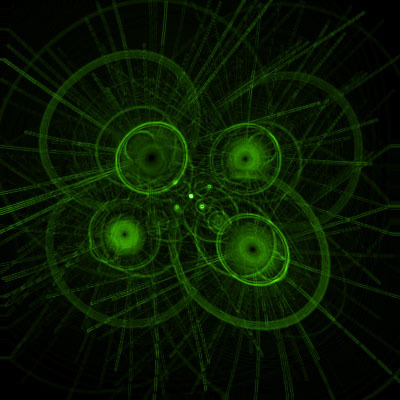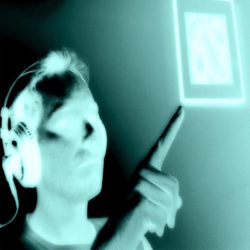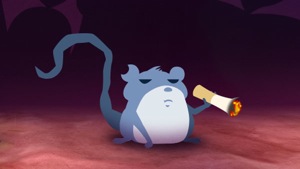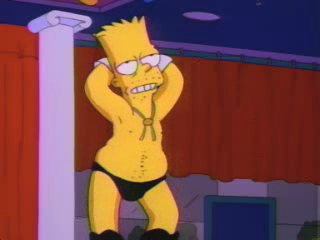My mother was watching “The Biggest Loser” the other night while I was exercising on the stationary bike. I remarked that it was hard for me to feel much sympathy for these grossly overweight people, much less give them a big pat on the back if and when they lost weight. After all, I said, isn’t that like giving someone a medal for ceasing to bang their head against a wall? I mean, it’s a good thing to lose weight, but aside from the rare thyroid condition or what have you, didn’t these people get fat in the first place because of ignorance and poor choices? Clearly, I wasn’t feeling much in the way of compassion for these people, and my mother got on me a bit, saying that not everybody is as disciplined as I am.
Now the first thing I thought to myself was “Shit — I’m always lamenting my LACK of discipline.” Then I really started to ponder about whether or not any of us really has a choice about such matters, whether or not we truly are responsible for our own misery and/or fulfillment. I’ve been operating on the premise that I, in fact, AM responsible for my own happiness, having seen time and again how I choose the dulling comfort of the status quo when faced with the possibility of deep personal change. So, naturally I assume most other adults choose a life of relative ignorance and suffer the consequences accordingly.
This way of thinking though, does let one off the hook when it comes to feeling compassion, which might be an indicator something is amiss. After all, isn’t compassion supposed to spring naturally and effortlessly from the state of spiritual wakefulness?
Anyway, later on I went upstairs and finished the book The Power of Now, by Eckhart Tolle, and came across the following:
It is misleading to say that somebody “chose” a dysfunctional relationship or any other negative situation in his or her life. Choice implies consciousness – a high degree of consciousness. Without it, you have no choice. Choice begins the moment you disidentify from the mind and its conditioned patterns, the moment you become present. Until you reach that point, you are unconscious, spiritually speaking. This means that you are compelled to think, feel, and act in certain ways according to the conditioning of your mind.
This makes a lot of sense to me, as did about ninety-nine percent of what Tolle had to say throughout the rest of the book. Apparently, Oprah liked the book as well, and her stamp of approval put the book in millions of hands. Basically, Tolle subscribes to the notion that the main barrier to spiritual enlightenment is our identification with the mind or ego. He advocates a practice of focusing awareness and attention on present moment experience, particularly the felt sense of the body, as a means of breaking our attachment to thought forms and thus realizing our true, transpersonal nature.
His basic view of enlightenment fits quite well with my own experience, and I appreciate his keen ability to express subtleties of spiritual inquiry in simple, direct language. In fact, he expresses his views in a pretty radical fashion, and it surprises me that so many people read his book. I wonder how many people really “bought” it. It struck me that if one REALLY believed what this guy was saying, the implications would be staggering in terms of how one goes about living one’s life. This certainly has been the case for me, although I’ve been struggling to integrate my transpersonal realizations into my daily life for many years now, long before I came across Tolle’s book.
For the most part, The Power of Now struck me as an articulate expression of what I already know to be true in my experience, at least as I understand it presently. However, I can’t endorse it a hundred percent. At times Tolle slips out of his clear, direct, experience-based language and makes bold, dogmatic metaphysical claims. For instance, he made reference to the Tibetan Book of the Dead and claimed one needed a certain degree of consciousness while dying in order to realize “conscious immortality,” or else be subject to “another round of birth and death.” This strikes me as nutty. How in the bloody hell does he know what happens at biological death? And he also equates women’s premenstrual tension with “the awakening of the collective female pain-body” — as if we’re just supposed to take his word for it. Again, this is kinda nutty, and would be quite enough for many to reject everything else he says. And that would be a shame.
I’ll close with another quote from the book that I dig. By “practicing surrender” Tolle is talking about accepting the present moment as it is, which means letting go of thought forms and becoming deeply present to the flow of experience as it felt in the body:
Until you practice surrender, the spiritual dimension is something you read about, talk about, get excited about, write books about, think about, believe in – or don’t, as the case may be. It makes no difference. Not until you surrender does it become a living reality in your life.




